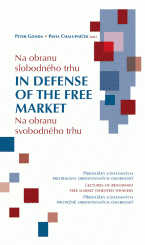 |
|||||||
| INSTITUTE | CONSERVATISM | M.R.STEFANIK |
| NEWS
|
[28.08.2006, Tom Nicholson, NEWS]
A decision by the cabinet to give municipalities situated at a higher altitude a greater share of tax revenues, and at the same time to cut funding for lower-lying towns and villages, drew cries of discrimination from the opposition Hungarian Coalition party, which accused the government of using public money to reward its own supporters. The south of the country, where most of the 500,000-strong ethnic Hungarian minority lives, is typically flat lowland, meaning that the government tax cuts in effect mean less money for Hungarian municipalities, and more for higher-lying towns in the northwest, the bastion of the far-right Slovak National Party (SNS), part of the ruling coalition. Under the new rules, for example, Bratislava will lose Sk38 million from its budget, while Poprad will gain about Sk14 million. The text of the resolution the cabinet approved at its August 17 session was actually drawn up by former Finance Minister Ivan Mikloš, and was only rejected by the former cabinet when the SMK blocked it. The idea originated after the severe winter of 2005-2006, when heavy snowfall and long months of freezing temperatures meant extra costs for towns and villages at higher - and, according to the government's logic, colder - elevations. Such towns not only had to cover the cost of heating public spaces longer, but also faced greater snow removal charges, and even payments for fixing the collapsed roofs of public buildings. According to SNS MP Rafael Rafaj, the measure benefited the majority. "We said that Slovakia needs a Slovak government. The current government is Slovak, and given that Slovakia is a mountainous country, this compensation measure will serve the majority of the inhabitants of this country." But the SMK cried foul, saying the government was favouring its own voters at the expense of other groups. "Many officials from the SNS and Smer are from higher-elevation towns, which just proves what I'm saying," said SMK MP Iván Farkas. The measure also hurts ethnic Slovak lowland communities, and has drawn wider protests than just from the Hungarian community. "I don't speak a word of Slovak, but there are a bunch of us non-Hungarian mayors against this rule," said Jozef Filkus, mayor of the village of Malé Zlievce near Veľký Krtíš. "The SNS just put us all in one basket." Under the current law, municipalities and cities get a 70.3 percent share of the income tax collected by the state. However, the government may decides how this share is divided up among municipalities. The way in which 23.5 percent of the money is currently divvied up is according to the number of people who are registered as permanently residing in each municipality as of January 1 the preceding year. Some 44 percent of the overall sum, however, is divided up according to a coefficient related to the height above sea level of the centre of the municipality, meaning the higher the altitude, the more money a village gets. The Fico government decided to increase the sum divided according to the altitude coefficient to 57 percent, meaning that altitude will henceforth play a greater role than before. The dividing line between the winners and losers under the new system will be 277 metres above sea level, with the 1,306 towns lying above that height getting more, and the 1,581 municipalities below it getting less in 2007 than this year. As the money is used for financing municipal transport, schooling and social services, the low-lying towns are faced with either cutting services or raising taxes to pay for what they already offer. Štefan Mišák, the mayor of Levice, which stands to lose Sk3 million next year, said that the shortfall would be "made up by raising local taxes and making cuts to basic services that will affect the lives of residents". According to Dušan Sloboda, a regional geographer and an analyst with the M. R. Štefánik Conservative Institute in Bratislava, the problem with the law is not merely that some municipalities will lose out, but that the coefficient is too clumsy a tool to achieve the government's aims. "It would have been better to judge differences in local climatic conditions in a more sophisticated fashion," he argued. "To get an idea of how much towns spend on heating, for example, you have to measure things like average air temperature, precipitation and wind speed. Elevation may have an impact on these things, but you also have to take into account the continental influence, which gives much colder winters in the east, as well as temperature inversions in canyons and valleys, which often give lower-lying locations colder weather than the uplands. "The altitude coefficient has to be regarded as an extremely simplistic, inappropriate and unjust means of dividing up tax income." Article was published in the Slovakia`s English-language weekly The Slovak Spectator. |
 English | Slovak
English | Slovak
This website was created also thanks to funding granted by The Trust
for Civil Society in Central and Eastern Europe.
Website powered by Metafox CMS from Platon Group.
|
Conservative Institute of M. R. Stefanik |
Tel.:
+421 258 100 188 |

 Municipalities at higher altitudes to get greater share of public money
Municipalities at higher altitudes to get greater share of public money





